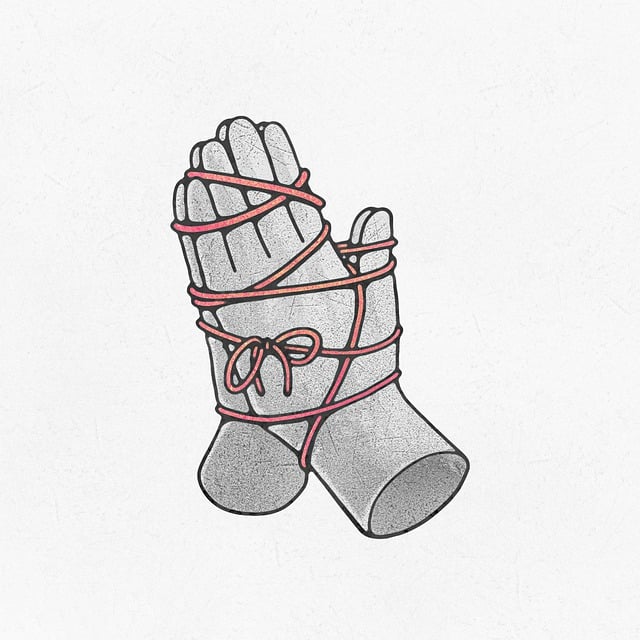Obsessive Compulsive Disorder (OCD) is treated in Mesa, AZ, through specialized therapy offering Cognitive Behavioral Therapy (CBT) and exposure therapy. CBT challenges negative thought patterns, while exposure therapy gradually exposes patients to triggers to reduce anxiety. After completing therapy for compulsions in Mesa, support groups and aftercare programs help maintain progress. These evidence-based treatments significantly improve quality of life for individuals dealing with OCD, focusing on therapy for compulsions Mesa.
In Mesa, AZ, individuals struggling with Obsessive Compulsive Disorder (OCD) now have access to effective treatments that target both compulsions and intrusive thoughts. This article explores comprehensive therapies, including Cognitive Behavioral Therapy (CBT) and Exposure Therapy, designed to reshape mind patterns and confront fears gradually. By delving into evidence-based strategies for managing OCD in daily life, we offer valuable insights into reducing compulsions and building resilience. Discover how these approaches facilitate long-term management and support post-therapy for those seeking relief from OCD symptoms in Mesa.
- Understanding OCD: A Common Mental Health Struggle
- Cognitive Behavioral Therapy (CBT): Unlocking Mind Patterns
- Exposure Therapy: Confronting Fears Step by Step
- Strategies for Reducing Compulsions in Daily Life
- Building Resilience Through Thought Challenging Techniques
- Long-Term Management and Support After Therapy
Understanding OCD: A Common Mental Health Struggle

Obsessive Compulsive Disorder (OCD) is a common mental health struggle characterized by intrusive thoughts and repetitive behaviors or compulsions that individuals feel compelled to perform in an attempt to alleviate anxiety. Those affected by OCD often experience a strong, irrational fear of harm or contamination, leading them to engage in ritualistic actions as a means of assurance. This cycle can significantly impact daily life, causing distress and disrupting routines.
In Mesa, AZ, therapy for compulsions is available through specialized mental health professionals who employ evidence-based approaches like Cognitive Behavioral Therapy (CBT) and exposure therapy. CBT helps individuals identify and challenge negative thought patterns associated with OCD, while exposure therapy gradually exposes patients to feared triggers, teaching them effective coping strategies to manage anxiety without resorting to compulsive behaviors. With the right support, those struggling with OCD can learn to reduce their compulsions and intrusive thoughts, leading to improved quality of life and better overall mental health in Mesa and beyond.
Cognitive Behavioral Therapy (CBT): Unlocking Mind Patterns

Cognitive Behavioral Therapy (CBT) is a highly effective approach to treating Obsessive Compulsive Disorder (OCD) in Mesa, AZ. By focusing on identifying and changing maladaptive thought patterns and behaviors, CBT helps individuals manage their symptoms and reduce compulsions. This therapy for compulsions in Mesa targets the root cause of OCD, enabling clients to challenge and reframe distorted thinking that drives intrusive thoughts and subsequent rituals.
Through structured exposure exercises and cognitive restructuring techniques, CBT facilitates a gradual exposure to anxiety-provoking situations, desensitizing individuals to their fears without resorting to compensatory behaviors. This process, coupled with learning relaxation strategies, empowers those seeking therapy for obsessive thoughts in Scottsdale to gain control over their anxiety management and lead more fulfilling lives free from the constraints of OCD.
Exposure Therapy: Confronting Fears Step by Step

Exposure therapy is a powerful tool within CBT to confront and overcome fears associated with OCD. It involves gradual and controlled exposure to the specific situations or objects that trigger compulsive behaviors, allowing individuals to face their anxiety head-on. The process begins by identifying the most distressing scenarios or thoughts for each patient. Then, therapists help clients understand the connection between these triggers and their compulsions.
Through a step-by-step approach, patients are encouraged to engage in simulated or real-life situations, starting from less frightening scenarios and gradually moving towards more challenging ones. This systematic exposure helps individuals learn that their feared outcomes rarely occur and that they can manage their anxiety without resorting to compulsive rituals. Over time, this therapy empowers clients to develop coping strategies and a sense of control, reducing the impact of both compulsions and intrusive thoughts in their daily lives, including those seeking therapy for compulsions in Mesa or treatment for OCD in Scottsdale.
Strategies for Reducing Compulsions in Daily Life

In therapy for compulsions in Mesa, individuals with Obsessive Compulsive Disorder (OCD) learn effective strategies to manage and reduce their compulsions in daily life. Cognitive Behavioral Therapy (CBT) plays a pivotal role by helping patients identify and challenge distorted thinking patterns that contribute to obsessive thoughts. Through CBT, patients acquire skills to reframe these thoughts, making them less distressing and reducing the urge to perform compulsive behaviors. For instance, if someone has an intrusive thought about contamination, therapy can help them understand that this fear is exaggerated and develop healthier coping mechanisms.
Exposure therapy is another powerful tool used in treatment for OCD in Mesa and Scottsdale areas. This involves gradually exposing individuals to situations or objects that trigger their obsessions while preventing them from engaging in compulsive rituals. By facing these fears in a controlled environment, patients learn that nothing catastrophic happens, thus reducing anxiety over time. This process helps break the cycle of avoidance and obsession, making it an effective strategy for managing OCD symptoms, especially in therapy for obsessive thoughts Scottsdale.
Building Resilience Through Thought Challenging Techniques

One of the most effective ways to build resilience and combat OCD symptoms is through thought-challenging techniques learned in Cognitive Behavioral Therapy (CBT). This involves identifying and questioning the validity of intrusive thoughts and compulsions that arise. By learning to challenge these thoughts, individuals can reduce their impact and gain a sense of control. For instance, if someone with OCD has a fear of contamination, CBT therapists will help them examine the evidence supporting this fear and offer alternative, more balanced perspectives.
Through exposure therapy, combined with CBT techniques, individuals confront their fears in a safe environment, gradually reducing anxiety over time. This process empowers patients to manage their symptoms effectively, leading to improved quality of life. For those seeking therapy for compulsions in Mesa or treatment for OCD in Scottsdale, these evidence-based methods offer a promising path toward recovery and increased resilience.
Long-Term Management and Support After Therapy

After completing a course of therapy for compulsions in Mesa, many individuals find themselves equipped with valuable coping mechanisms and strategies to manage their OCD symptoms effectively. While therapy provides powerful tools, long-term management often requires ongoing support and practice. The good news is that Mesa offers numerous resources to facilitate this process.
One effective approach is joining support groups or participating in aftercare programs specifically designed for individuals with OCD. These groups provide a safe space to connect with others facing similar challenges, share experiences, and offer encouragement. Additionally, therapists in Scottsdale specializing in therapy for obsessive thoughts can offer ongoing counseling sessions tailored to individual needs, helping to prevent relapse and reinforce positive behaviors learned during initial treatment for OCD in Mesa.
